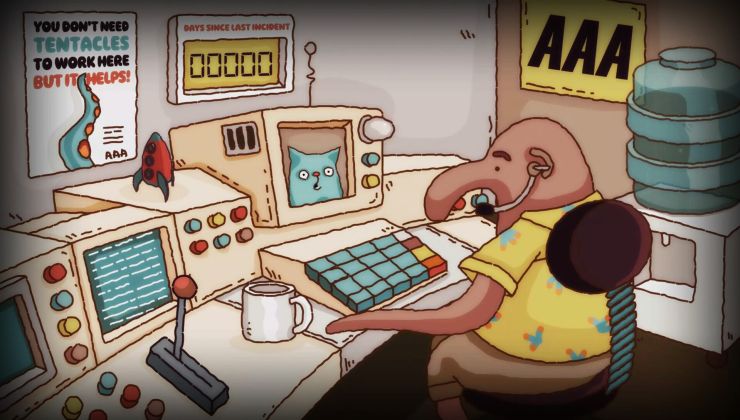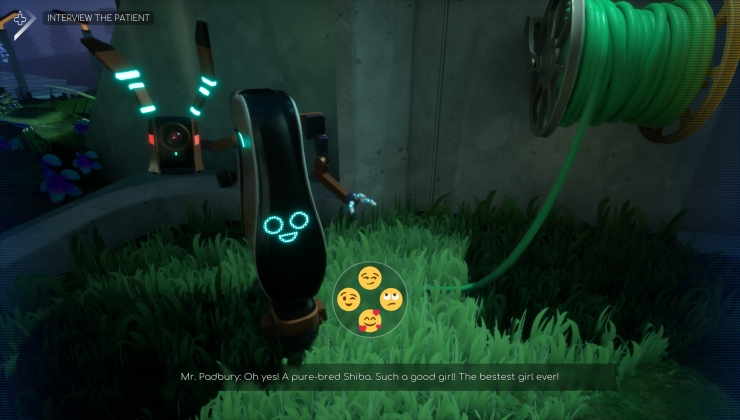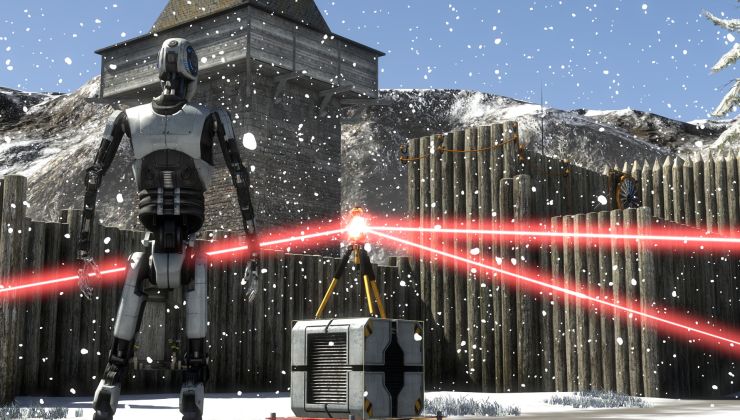This is sad, very sad. A developer from The Libretro Team has written up a blog post on the libretro site asking for us and others to highlight an ongoing problem of code getting ripped off and licenses completely ignored. To be clear, it's not just them, there's other examples in that post of other projects also getting the same crappy treatment.
For those who have no idea what The Libretro Team do, they work on Libretro: a simple API that allows for the creation of games and emulators, RetroArch: a frontend for emulators, game engines and media players and Lakka: a light Linux distribution that can turn a computer into a retro-gaming console.
The blog post starts with a rather sad introduction:
Dear game journalists and other members of the press,
We are beyond the point of desperation at this point, and we ask you dearly for your help in this ongoing problem. Independent entrepreneurs are playing loose and fast with the laws and licenses surrounding open source code, and we have found ourselves the victim of multiple copyright and license violations ever since Hyperkin started selling its Retron5 product back in 2014.
It doesn't get any prettier the further you read it either. It's rather a lot to take in, but the jist of it is that multiple people and companies keep ripping off the emulation scene. They take the emulators, bundle it with some cheap hardware and sell it hoping to make a quick buck. The problem stretches over a few years, but it seems to have increased since Nintendo released things like the NES and SNES mini. Naturally, others see such things being popular and think "We can do it too!" and they see money signs in their eyes and think of the massive yacht they can buy with the quick cash.
They've had some success in fighting these, with Amazon taking down the Sen Pi device made by TekSyndicate that used the Lakka distribution, but more problems remain and they have been rather demoralised by the mess of it all. Especially as this year Retro-Bit have now made the "Super Retro Cade" which uses RetroArch. The company has admitted to using it, but the company doesn't even seem sure what emulators it's using.
Side note: I hadn't actually heard of Lakka until today, sounds like an awesome project!
I really feel for them, I can't imagine how crap it feels to have people rip off your code and sell it on without giving back in some way. Of course, not everyone wants something in return for people using their code, but if the license forbids it or instructs you to provide the code with the hardware (or whatever else the license says you need to do), then you should play ball.
Hopefully with us and others highlighting it, some people might think twice before ripping off open source/non-commercial projects. If you do, you will be found out and you will have to pay for it in the end. The problem on top of all this, is that it will put off the very people working on such projects from continuing and if your business relies on their work—good luck doing it yourself.
If, like me, this kind of stuff annoys you, please do spread the word.
All the best to The Libretro Team and anyone else being affected by stuff like this.
Thanks for the tip Brandon.
In the past, I used to write something like "if you paid for it, you got scammed" in some of my projects that I knew someone would try to sell. I know the same can't be done with these projects, but that was the solution I found back then...
There's another side to this mess too. Although people are taking RetroArch and not properly acknowledging its contributions, even fewer people are acknowledging the emulators themselves. That is, even when someone knows and respects what RetroArch is doing, they don't know (or often care) about the emulators behind the scenes.
I've been working on Stella (an Atari 2600 emulator) for almost 18 years at the point. Stella is considered the 'gold standard' for 2600 emulation, but I would bet that most people using RetroArch aren't even aware that the work done for this isn't being done by Lakka, or RetroArch, but by the Stella developers. There are only a few of us, and only one (myself) that has stayed with it so long over the years. And aside from a few small contributions here and there, we receive nothing.
I've even been contacted by companies asking me to port the latest version of Stella to RetroArch so they can use it in their product!
Not to disrespect the work that RetroArch does, but even if they do get the recognition they deserve, I'll bet that it won't filter down to the emulator authors, who are IMO the ones doing the real work.
Even though I have never played a 2600 game, I have to say thanks for all the hard work. if that means anything. Dedication and generosity should be appreciated. On that note have you considered doing a patreon or donation page ?
except that they can hire someone with the money they did with the rip offs..
also, its a bit ironic that most of the users of the emulators are pirates, and people are "pirating" their code...
also, its a bit ironic that most of the users of the emulators are pirates, and people are "pirating" their code...
I can't speak for all emulator authors, but perhaps 90% of my contributions are to the debugger in Stella, which is directly used by actual game developers to write new games for the 2600. It is actually the opposite of piracy; we are providing tools to ROM authors to help with development.
People don't realise just how many games (and music / art ) is still made for older consoles. There is a decent community out there for most retro machines. I think with all the hardware we have now at our fingertips it must seem pointless to some to bother with old technology.
Last edited by on 21 Dec 2017 at 1:17 am UTC
I really feel for them, I can't imagine how crap it feels to have people rip off your code and sell it on without giving back in some way. Of course, not everyone wants something in return for people using their code, but if the license forbids it or instructs you to provide the code with the hardware
Most of the violations are apparently about GPLv3 anti-tivoization clauses, something that a large part of the open-source community rejects as too restrictive. Linux in particular is explicitly under GPLv2 and as such sees great popularity in the embedded market.
In particular that blog post claims:
These open-source programs are covered under certain licenses. Several of the emulators are covered under non-commercial licenses, which means they cannot be sold or profited from.
I don't think "non-commercial licenses" can comply with the official [open-source definition](https://opensource.org/osd-annotated). That claims to explicitly allow open-source to be used commercially:
6. No Discrimination Against Fields of Endeavor
The license must not restrict anyone from making use of the program in a specific field of endeavor. For example, it may not restrict the program from being used in a business, or from being used for genetic research.
Rationale: *The major intention of this clause is to prohibit license traps that prevent open source from being used commercially*. We want commercial users to join our community, not feel excluded from it.
Kodi is having the same thing happen to it, it is grabbing a few recent headlines. People pull together some cheap hardware, install Kodi, and some add-ons and sell a pre-configured pirate box. Of course the original copyright owners don't like this and take a scorched earth policy trying to burn everything involved. Pirates usually get away and stay anonymous while the devs get entangled with the bad publicity and takedown requests. They can also get sued, even if they are not responsible for any actual piracy in the worse case scenario.
These people are leeches. They are earning money off the hard work of others. I know many times, I just read the synopsis of the article posted here on GoL. Please take the time and read the [blog post](https://www.libretro.com/index.php/appeal-to-game-journalists-about-retro-bit-and-about-the-new-retro-emulation-industry-in-general/). It really gives an insight as to what scum we are referring to in this case.
Obviously this isn't the case with the typical hardwae running emulation software, but what about something like the MiST, where people have released a whole crapload of FPGA cores for?
Last edited by TheRiddick on 21 Dec 2017 at 2:38 am UTC
I was pretty excited to see the NeoGeo stuff release via Humble Bundle when it first came out because it gave ppl a chance to legally try these games either with the install or with MAME if you wanted to.
I remember using Stella a long time ago to play some games at an NYU game jam where ppl made 2600 games with different themes. It was a solid emulator.
This stuff is so murky it has me staying away from emulators for a long minute.
Thus the problem is mostly people violating closed source licenses which do not allow commercial use. I had been intending to ask whether these folks have talked to the Free Software Foundation, who might be able to help and/or give useful legal advice--but if the issue is non-Free software, that might not be a relevant question.
These do seem to be cases of copyright infringement, but for the most part don't seem to be cases of open source code being ripped off. Rather, in the summaries and linked posts I see again and again references to proprietary non-commercial code, which I take to be closed-source blobs with licenses which allow sharing but not resale.This. If you feel like free software developers should be credited and compensated, that's fair, but distributing GPL-licensed software commercially in a compliant way isn't an issue, legally or ethically. As far as I can see, all the listed cases pertain to non-free software.
Thus the problem is mostly people violating closed source licenses which do not allow commercial use. I had been intending to ask whether these folks have talked to the Free Software Foundation, who might be able to help and/or give useful legal advice--but if the issue is non-Free software, that might not be a relevant question.
Regardless of openness, ripping people working on awesome projects off still isn't nice though.
Last edited by qptain Nemo on 21 Dec 2017 at 6:29 am UTC
I've even been contacted by companies asking me to port the latest version of Stella to RetroArch so they can use it in their product!
I hope you quote them a tidy sum, with the understanding that everyone else gets to use it, too.
Anyway, enough of my ranting. Back to working on Stella, and playing some Tomb Raider :)
Tomb Raider on the 2600, that would be a feat of engineering.
These do seem to be cases of copyright infringement, but for the most part don't seem to be cases of open source code being ripped off. Rather, in the summaries and linked posts I see again and again references to proprietary non-commercial code, which I take to be closed-source blobs with licenses which allow sharing but not resale.I've adjust the wording to make the whole open source/non-commercial stuff a bit clearer. Thanks for pointing it out.
Thus the problem is mostly people violating closed source licenses which do not allow commercial use. I had been intending to ask whether these folks have talked to the Free Software Foundation, who might be able to help and/or give useful legal advice--but if the issue is non-Free software, that might not be a relevant question.
The result is the same though, licenses aren't being followed and companies are being dicks about it.
Not to disrespect the work that RetroArch does, but even if they do get the recognition they deserve, I'll bet that it won't filter down to the emulator authors, who are IMO the ones doing the real work.I have to say I'm honestly a little sad to see this kind of attitude of "real work", what they do has less worth? I fully agree the emulators they pull in should be credited, but to say it like that...
I used to watch teksyndicate alot couple years back. But then the guy who could explain in great detail how tech worked got fired, and the one making stupid jokes and reading news articles aloud stayed. It has never been the same.
Wendell the teddybear is now running Level1techs and Level1linux and it's good. Go watch it.













 How to set, change and reset your SteamOS / Steam Deck desktop sudo password
How to set, change and reset your SteamOS / Steam Deck desktop sudo password How to set up Decky Loader on Steam Deck / SteamOS for easy plugins
How to set up Decky Loader on Steam Deck / SteamOS for easy plugins
See more from me